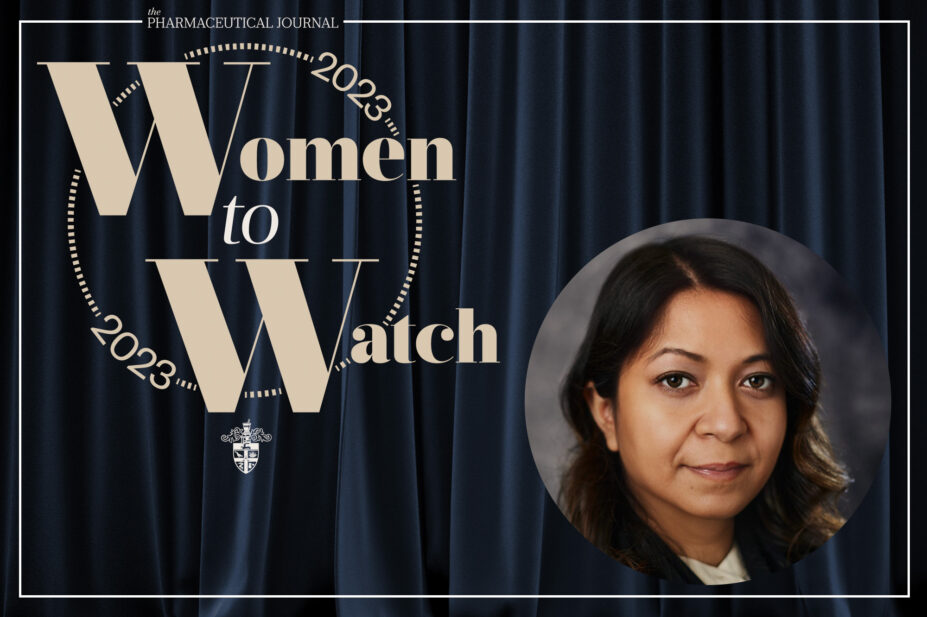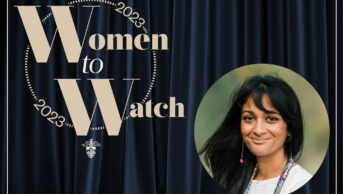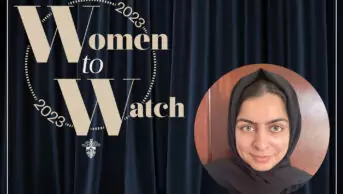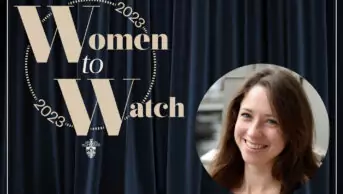
Sobha Sharma Kandel/The Pharmaceutical Journal
Sobha Sharma Kandel is keenly aware of the health inequalities faced by the Nepalese community in London.
When her parents moved from Nepal to the UK in the 1970s, Kandel says that there were many barriers, including the language, that prevented them from accessing the healthcare they needed.
Now, Kandel endeavours to help those facing similar circumstances by volunteering with the Advocacy for Nepalese Organisation (AFNO) and offering health advice, signposting and free blood pressure checks at her Woolwich-based pharmacy each week. It has become a vital service for older ex-Gurkha patients who have difficulty accessing healthcare owing to language and cultural barriers.
“Addressing health inequalities is important to me and being of Nepalese descent myself, I knew there was a big issue in this community,” says Kandel. “I saw first hand my parents struggle, feeling isolated without much support.”
Kandel says that sometimes patients in this community will receive a letter about bowel screening, for example, and need help understanding what they need to do. Other times, she helps them with issues relating to housing or accessing benefits, she explains. “We’re just there for them, we will have a chat or an event where we offer snacks.”
I really enjoy being autonomous and being able to tailor services around my community
Beyond the Nepalese community, the pharmacy also supplied medicines to 600 Afghan refugees who were quarantining in a hotel during the early days of the pandemic. “We held an exclusive contract with the clinical commissioning group (CCG) to supply medication to people isolating in the local hotel,” she said.
“This included 600 Afghan refugees. We provided prescription deliveries and also a minor ailment advice, we had a hotline set up for this and we worked with the medical team at the hotel as well as the clinical commissioning group.”
As a poorly child herself, Kandel remembers visiting pharmacies to get the antibiotics that would help her feel better. It triggered her interest, not only in science, but in helping others get the care they need too.
At her first Saturday job in Boots when she was aged 15 years, Kandel could see the immediate impact the pharmacists had on people’s lives and she knew this was the career for her. However, in her early days working as a community pharmacist for a multiple, she felt restricted by the corporate environment, when what she wanted was to go that extra mile for her patients.
So four years after she qualified in 2009, she bought a pharmacy in South East London with her husband who was interested in the business side of community pharmacy. She was pregnant with her third child at the time and by her own admission everything was moving very fast.
“Those early days were a big shock to me because I was used to working in a multiple that had its own head office and structures and now I had to work out how to do everything. Even as a pharmacist, it really pushed me out of my comfort zone and you’re working all hours,” she explains.
The second pharmacy they bought in 2013 was the pharmacy in Woolwich, which had a 100-hour contract and was located underneath a new GP surgery that was opening.
“This is our flagship store. It’s in a really densely populated area with a lot of ethnic minorities, including a large Nepalese community, so we really felt we could bring something to the area,” she says, adding that Nepalese is the second most commonly spoken language in the area after English.
Support services for patients with drug addiction were some of the first pharmacy services they offered, including needle exchange services and supervised methadone and buprenorphine. To make this a reality, Kandel self-funded her independent prescribing qualification and did clinical days in the local drug addiction clinic.
Next came a range of other services, including private travel vaccinations and a strep A test and treat service. Most notable though was the pharmacy’s involvement in the COVID-19 vaccination service.
Woolwich Late Night Pharmacy was one of the first COVID-19 vaccine clinics in London and has provided more than 70,000 vaccinations in total.
“There was a lot of vaccine hesitancy but also people had trouble booking their vaccine so we became a community hub, helping people read letters, book things for them, call the GP surgery and so on,” says Kandel.
Further inspired by her work with the Nepalese community, where use of herbal medicine is common, Kandel is now doing a PhD in optimising patient healthcare by increase healthcare professionals’ knowledge in herbal medicine.
“The reason I love community pharmacy is the clinical aspect, which I thought I wouldn’t get in community, but I was wrong,” she explains. “I really enjoy being autonomous and being able to tailor services around my community.”
Panel comments
“An influential woman who actively addressed vaccine hesitancy in her local Nepalese community through promotional videos in Nepalese.”
“Sobha sounds like an incredibly passionate pharmacist and humanitarian dedicating her spare time to helping others in need.”
- Meet the rest of The Pharmaceutical Journal’s Women to Watch 2023 here


